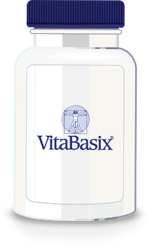Around one in eight people will suffer from a mood disorder in the course of their lives. Those affected may experience a range of emotional and physical symptoms. The causes of mood disorders are varied and complex and are primarily related to genetic predisposition, certain psychological factors and neurophysiological changes. The latter are characterised by changes in the balance of certain neurotransmitters in the brain, i.e. the messenger substances that are necessary for adequate signal transmission between nerve cells. Serotonin is one of the most important of these messenger substances. As serotonin cannot be absorbed through food, the organism must produce this messenger substance itself from precursors or special amino acids. The most important precursor is the essential amino acid tryptophan. It is found in cheese, fish, meat, pulses, cereals, nuts and eggs. But asparagus, leek, beetroot and cocoa also contain a lot of tryptophan. A first degradation product, 5-Hydroxytryptophan, is then formed from the tryptophan.
This modified amino acid is also found as such in certain types of bananas, poultry, but above all in the African black bean, Griffonia simplicifolia, where it makes up 20% of the dry weight of the bean. In a further enzymatic step, serotonin is ultimately produced from 5-hydroxytryptophan.
In addition to its positive effect on mood, serotonin also has an influence on the dilation of blood vessels in the muscles and thus helps to maintain normal blood circulation and ensure an optimum blood supply to the muscles. In the brain, serotonin has anxiolytic and mood-enhancing properties. If it is further metabolised during the night, the hormone melatonin is produced, which is positively associated with sleep.
Vitamins B3 and B6 (found in many animal and plant foods) support these processes by helping to ensure that tryptophan is primarily converted to serotonin and not metabolised via the alternative kynurenine degradation pathway.
All of these nutrients can help to promote serotonin levels in the brain and thus support a positive mood. They can also help to regulate appetite and reduce the sensation of pain.
The seeds of the Griffonia plant contain 20% of the amino acid 5-hydroxytryptophan, from which the body can produce serotonin.
If the absorption of serotonin precursors through the diet is not sufficient or there is an increased need, these nutrients can be supplemented through special food supplements.



 Chronobrands
Chronobrands

Reviews
There are no reviews yet.